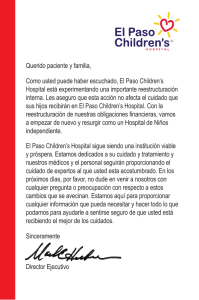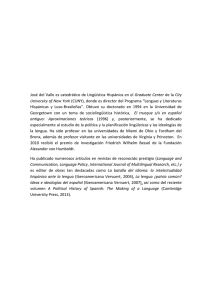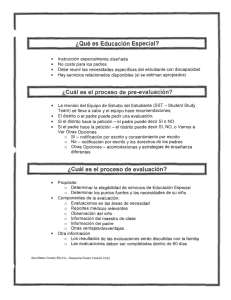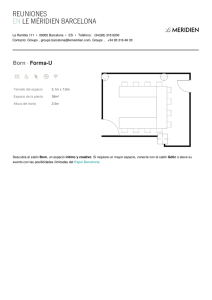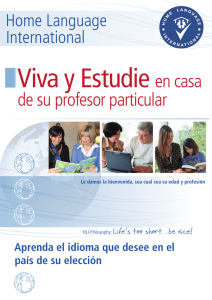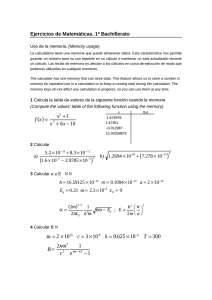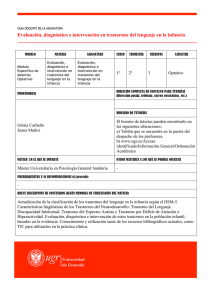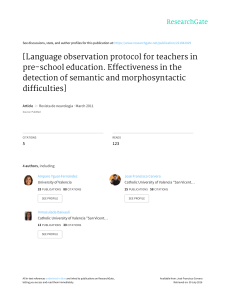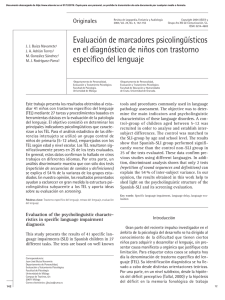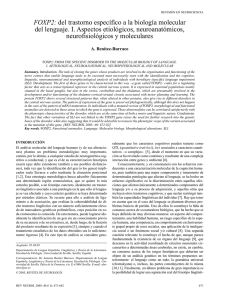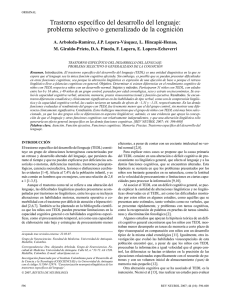efecto del uso de claves y del intervalo temporal en la recuperacion
Anuncio
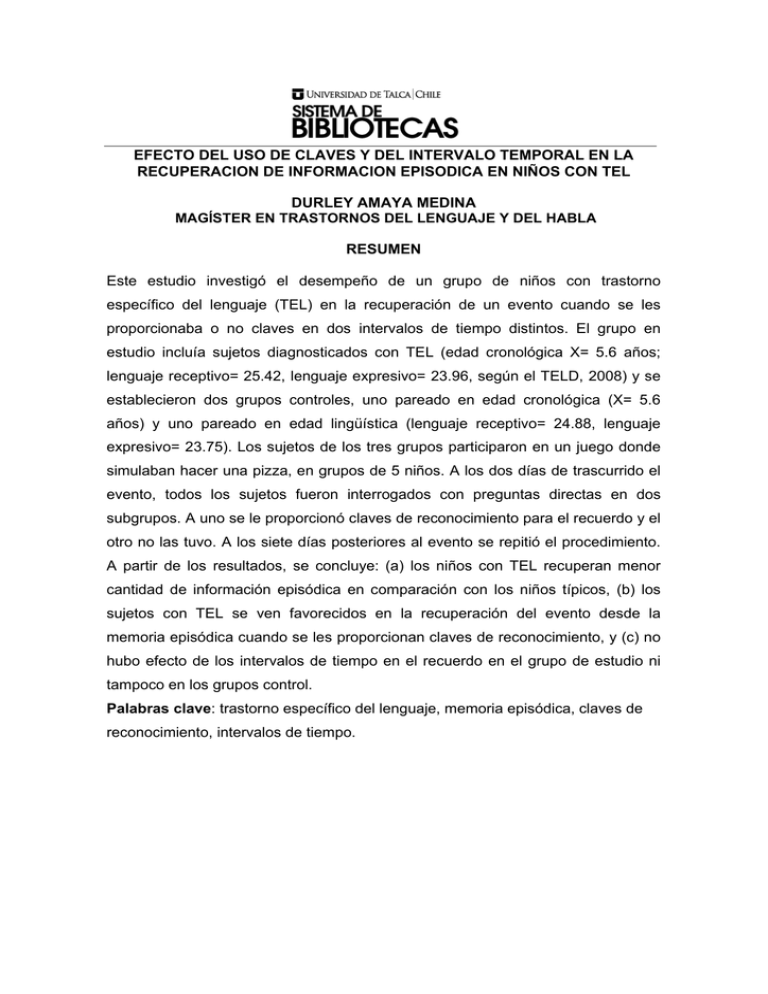
EFECTO DEL USO DE CLAVES Y DEL INTERVALO TEMPORAL EN LA RECUPERACION DE INFORMACION EPISODICA EN NIÑOS CON TEL DURLEY AMAYA MEDINA MAGÍSTER EN TRASTORNOS DEL LENGUAJE Y DEL HABLA RESUMEN Este estudio investigó el desempeño de un grupo de niños con trastorno específico del lenguaje (TEL) en la recuperación de un evento cuando se les proporcionaba o no claves en dos intervalos de tiempo distintos. El grupo en estudio incluía sujetos diagnosticados con TEL (edad cronológica X= 5.6 años; lenguaje receptivo= 25.42, lenguaje expresivo= 23.96, según el TELD, 2008) y se establecieron dos grupos controles, uno pareado en edad cronológica (X= 5.6 años) y uno pareado en edad lingüística (lenguaje receptivo= 24.88, lenguaje expresivo= 23.75). Los sujetos de los tres grupos participaron en un juego donde simulaban hacer una pizza, en grupos de 5 niños. A los dos días de trascurrido el evento, todos los sujetos fueron interrogados con preguntas directas en dos subgrupos. A uno se le proporcionó claves de reconocimiento para el recuerdo y el otro no las tuvo. A los siete días posteriores al evento se repitió el procedimiento. A partir de los resultados, se concluye: (a) los niños con TEL recuperan menor cantidad de información episódica en comparación con los niños típicos, (b) los sujetos con TEL se ven favorecidos en la recuperación del evento desde la memoria episódica cuando se les proporcionan claves de reconocimiento, y (c) no hubo efecto de los intervalos de tiempo en el recuerdo en el grupo de estudio ni tampoco en los grupos control. Palabras clave: trastorno específico del lenguaje, memoria episódica, claves de reconocimiento, intervalos de tiempo. ABSTRACT This study investigated the performance of a group of children with specific language impairment ( SLI) in the recovery of an event when they were given or not clues at two different time intervals .The study group included subjects diagnosed with SLI ( chronological age X = 5.6 years; receptive language = 25.42, expressive language = 23.96, according to TELD, 2008 ) and two control groups, one matched in chronological age (X = 5.6 years ) and one matched in linguistic age (receptive language = 24.88, expressive language = 23.75 ) . The subjects of the three groups participated, in a game where they simulated making a pizza, in groups of 5 children. Within two days of the event, all subjects were asked direct questions into two subgroups. One was given recognition memory keys and the other did not . Within seven days of the event the procedure was repeated . From the results, it is concluded : ( a) children with SLI recover fewer episodic details compared to typical children, ( b ) subjects with SLI are favored in the event retrieval from episodic memory when recognition keys are provided, and ( c ) there was no effect of time intervals in the memory in the study group nor in the control groups. Key terms: specific language impairment, episodic memory, retrieval cues, time interval.
